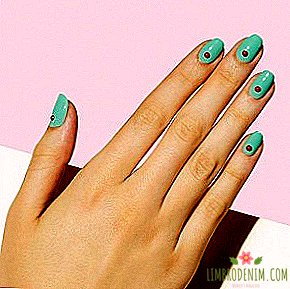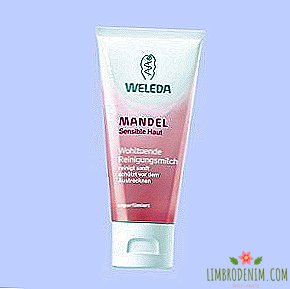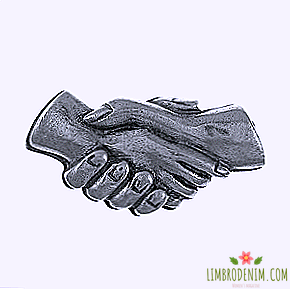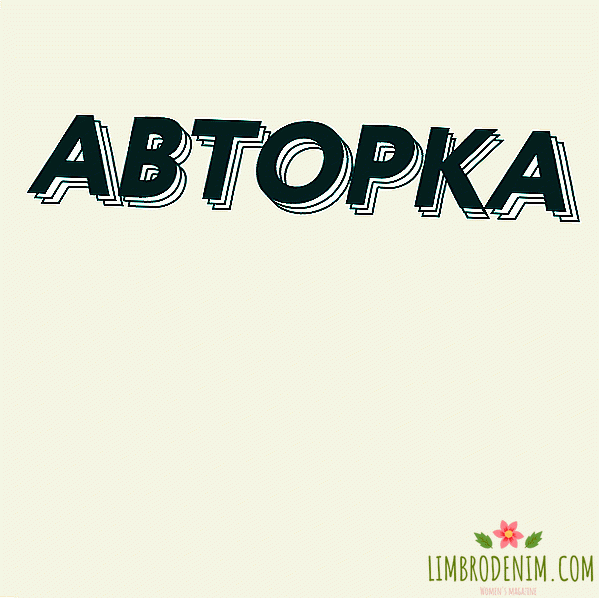Zero waste: I gave up the trash and happy
We have already talked about zero waste, or "zero rubbish" - a way of life for which a person minimizes the amount of waste, and ideally does not throw anything at all. We started to talk about where to start, and today we decided to find out how everything works in practice. We talked about zero waste and the transition to conscious consumption with Olga Kib - co-founder of the Bombay Express and Lancheria cafes, hospitality consultant, author of barista courses and author of the Zeroeistushka telegram channel.
Compost and ancient packages
The concept of zero waste was the answer to the questions that have occupied me for the last couple of years: how to become happy, how to lose weight, how to save, how to finally feel that you are contributing to something more. It seems to me that people are often depressed because they do not feel they are needed. I think many people forget that in order to feel happy, you need not only to receive, but also to give.
I dreamed of switching to a new way of life for seven years, but I couldn’t decide on cardinal changes - everything went gradually. Somehow my friend and I went to France, to the village near Avignon. We booked a house: in the open field and in the middle of it - a house with a horse and chickens. The first thing that the hostess told us on arrival was: “We share the garbage, and you girls, once you live here, will also do it. There is paper, there is glass, the rest is composted.” For me, this was a shock: the first thing she said was not how the household is being managed, not about the family, but that we will share the garbage.
Other events also affected: for example, when I worked at Airbnb, we had common events for employees from offices around the world. In addition to the entertainment part, there were also lectures conducted by my colleagues. I signed up for one of them when I heard that we would be “compose” something - I thought we would be writing something. It turned out that I heard and it was still talking about compost. The presentation consisted of photographs of chickens that a person holds in his garden, photos of compost and boxes for him. The speaker simply glowed with happiness, said that compost was the best thing that happened to him. Seven years ago, this approach seemed to be cut off from reality.
Then I lived half a year with friends in Berlin. They had containers for different types of waste, and occasionally I was responsible for throwing out the garbage. When you do it for half a year, you get used to it all in your boxes, and you don’t even think that it can be different. Although I remember how on the first day I stood over these trash cans, like a duck: I thought it was paper or plastic, was it necessary to tear off the paper part and put the plastic separately. For a while I didn’t understand how everything worked, but I quickly got involved.
About five years ago I participated in the volunteer program in Dublin - this also allowed me to take a small step towards zero waste. Our task was to clear the parking lot of debris, so that there could be a city garden, which everyone could use. I liked the idea so much that I immediately wanted to help. Basically, we struggled with plastic bags - they were literally everywhere. Local commented on our findings, and sometimes you could hear something like: "Wow, what is this package doing here? This store has been closed for twenty years already."
Finally, at my home in Moscow, they opened a point of separate collection of garbage - tanks with instructions where to throw cardboard, glass and metal. I thought that everything is easier than steamed turnip: you just need to put four boxes in the apartment and lay out the garbage on them. There are a lot of points on the Recycle Map site: somewhere you can just pass the glass, somewhere there are different types of garbage. I have friends who collect garbage, and then take it by taxi to the delivery point. It seems to me that you just need to get interested, look at the map and understand - maybe there is a point on the way to work, maybe near the parents' house. I think that everyone would sort the garbage if there were special trash cans in each yard.
Lonely banana and responsible vegans
It’s impossible to become zero waste right away - and I'm not perfect either; my approach rather describes the expression low waste (reducing the amount of garbage. - Approx. ed.). There are five principles of zero waste: refuse, reduce, reuse, recycle, rot ("refuse, reduce, use again, recycle and compost. "- Ed.). If you already have some thing, you should use it to the maximum. For example, I have plastic bags at home — I use them three hundred times until they turn into dust. The thought that I did not buy fifty plastic boxes in a week, although I could have done it before, is warm. At the same time, I understand that there are things that will not be recycled - the same plastic bottle that you can no longer wash off the oil. The main thing is not to reproach yourself for everything that you throw into the common garbage, so as not to fall into despair - and remember your mistakes, so as not to be mistaken in the future.
Waste separation is the first step towards understanding how much you produce. We buy a lot of plastic and throw away a lot of food, but you can feel it only when you start sorting: you see how four boxes are filled - a little paper and iron, glass, if you are a big fan of wine, and just an incredible amount of plastic. I do not have a compost pit - I'm afraid the neighbors will hate me if I build something like this on an unglazed balcony, the smell will be strong. But compost is my dream.
I just stopped buying things in plastic. The first time when I set myself such a task and went to the store, I, of course, overestimated my possibilities and left with one banana - I was confused. Then she began to study what others were doing.
The meaning of zero waste is also not to produce garbage. When you throw everything into separate containers, you see specific things and you think: “Why did I buy it at all? Maybe I just don’t need it?” I love the farmers' markets, which are now throughout Moscow: I just come with bags and boxes and do not use a single plastic bag at all.
The zero garbage lifestyle is close to the ideas of minimalism, frugal living (prudent, economical life. - Approx. ed.) and veganism. Although I myself am not a vegan, I think that vegans are the most responsible consumers: when they buy any thing, they think for a long time whether they really need it, whether they comply with their principles. They basically become zero wasters - it is very easy for them to give up plastic. Many vegans talk about this on YouTube, where I mostly get information.
There is still Bea Johnson - "mommy" zero waste. Recently she came to Russia and gave a lecture, an incredible number of people gathered, which is very pleasing. She has only five T-shirts in her wardrobe - she appeared in just one of them. There is Amber Allen - my favorite, most sincere blogger; she talks with great energy about reducing the amount of garbage, frugal living, about how to consciously consume. Thanks to her, I have revised a lot in my behavior over the past year. There is also a cool British blogger Kate Arnell - everything is all right, fun and with red lipstick.
Sacks and incredulous cashiers
I began to take meals with me - no need to buy anything to take away and waste plastic and paper wagons. I stopped eating not the most useful snacks like chips - they are also in plastic. I use homemade toothpaste and reusable discs instead of cotton disks. I bought bamboo toothbrushes, not plastic - they just rot, and nothing remains of them. I stopped taking cleaning products for the sink, bath, toilet, stove, floor - all this is easy to replace with soda and vinegar, which are not only washed no worse, but also are much cheaper. I am thinking about my own washing powder, but have not yet understood how to do it.
I always have extra bags with me: even if I do not plan to buy anything, I still take at least one, so that I don’t accidentally get a plastic bag. I have a reusable water bottle and coffee cup, silicone oven roast in the oven. I use brushes from natural materials instead of plastic. Leftovers are covered with wax coated special pieces. Gaskets replaced with a version of bamboo, which can be washed, is the best purchase in my life.
My attitude to things resembles the approach of Marie Kondo: to keep only what pleases, and to throw out the rest. When I disassembled the clothes, I don’t have so many things left - since then I try not to buy too much. In addition to two pairs of jeans, two dresses, two skirts, two sweaters, I probably don’t need anything else. I was in London recently, and I was unexpectedly called to the Albert Hall for the BBC Radio Orchestra. I had to go to the dress, and instead of buying it at H & M, I borrowed the thing from my neighbor on the landing. I also change and sell what I do not wear. In the Lancheria cafe we arranged swaps - this is a cool way to get something for free and give away what you don’t need. They also conducted garage sales - people brought old books, interesting shoes, jewelry, perfumes.
Sellers in the market where I buy food have already remembered me and know that I do not need a package. The first time they asked: "Why?" I replied: "It's more convenient for me." In stores, my bags are always reweighed - they do not trust; but in general, everyone gets used. Friends listen, they wonder how I arranged my life. It seems to me that even such non-binding conversations are important. Now they sometimes say: "I saw avocados, but they were packaged, and I didn’t buy them - I went to another store and took them separately." It's great.
Of course, there are uncomfortable moments. I travel a lot and do not eat on board - there is a lot of plastic there. But once at the airport I really wanted to drink: there were no glass bottles in the vending machine, and in the cafe I did not pour water into my glass. In the end, I bought the usual compote for three hundred rubles instead of water in plastic for fifty - I thought it was better that way. Zero waste imposes obligations, but you are responsible only for yourself. Sometimes you really want to buy something necessary in plastic, but then you realize that there is always a way out: to buy a second-hand thing, ask it from a friend - in general, think of something. It's great when you cope with such small challenges. Buy what you need, without plastic - this is a mini-game every day.





